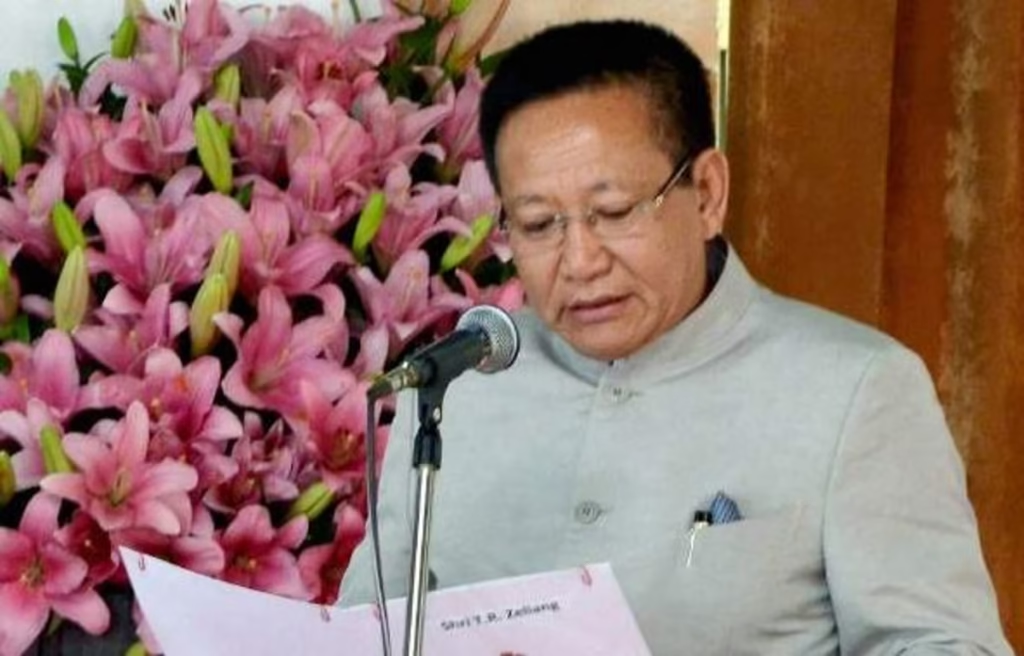Nagaland’s Deputy Chief Minister, T R Zeliang, has shed light on one of the primary obstacles hindering the completion of crucial infrastructure projects in the state. According to Zeliang, the delay in infrastructure projects is largely due to land compensation issues, which have become a significant bottleneck in the development process. Zeliang, who is also the Minister for Rural Development and Roads, has called for greater cooperation from the public in overcoming this challenge and ensuring the timely completion of these important projects.
The delay in infrastructure projects has long been a matter of concern in Nagaland. The state, which is located in the northeastern part of India, has been grappling with slow progress in various sectors, including roads, highways, and urban development. Zeliang’s statement highlights land compensation as a key factor behind the sluggish pace of progress in these areas. In his recent comments, Zeliang acknowledged that issues related to land acquisition, compensation for landowners, and disputes over land titles are causing considerable delays in the initiation and completion of vital infrastructure projects.
Land acquisition for infrastructure development is a critical issue faced by many states across India, and Nagaland is no exception. In Nagaland, a combination of factors, such as land ownership complexities, traditional practices, and the sensitive nature of tribal land rights, often makes the process of acquiring land for development projects more complicated. This has led to prolonged delays, with affected landowners sometimes hesitant or unwilling to part with their land, even when offered compensation.
Zeliang emphasized that addressing these issues of land compensation and acquisition would significantly accelerate the development of essential infrastructure in the state. He urged the public to collaborate with the government and understand the long-term benefits of such projects, stressing that the state’s infrastructure is key to economic growth and social progress. According to him, the government is committed to ensuring fair compensation to landowners, but cooperation from the people is necessary to navigate the challenges that arise during land acquisition.
The Deputy CM also acknowledged the government’s efforts to address these concerns. He mentioned that the government has been working on streamlining the land acquisition process by involving local authorities and communities in discussions about land compensation. Zeliang pointed out that this collaborative approach is aimed at resolving disputes and ensuring that compensation is fair and transparent, thus reducing resistance from landowners and speeding up the overall process.
The delay in infrastructure projects has not only affected the development of physical infrastructure but has also had a negative impact on the state’s economic growth. Projects that involve the construction of roads, bridges, and buildings are crucial for connecting remote areas, boosting trade, and improving the quality of life for the people. Without these developments, Nagaland’s growth potential remains limited, and the state lags behind in terms of infrastructure standards when compared to other regions of India.
Despite these challenges, Zeliang expressed optimism about the future of Nagaland’s infrastructure. He emphasized that with the support of the public and cooperation from all stakeholders, the state can overcome the hurdles related to land compensation. He assured that the government is committed to fast-tracking the approval and implementation of infrastructure projects that are vital for the state’s growth.
In addition to addressing land compensation, Zeliang also discussed the importance of improving the overall governance framework in Nagaland. He highlighted the need for better planning, resource allocation, and project management to ensure that infrastructure projects are completed on time and within budget. The Deputy CM also stressed the importance of keeping the public informed about the progress of these projects to build trust and encourage cooperation.
Nagaland’s infrastructure woes are not new, but the government’s focus on resolving land compensation issues presents a way forward. By addressing these concerns and encouraging public involvement, T R Zeliang believes that Nagaland can achieve significant progress in its infrastructure development. With the right approach, the state can overcome the delays that have long hindered its growth and ensure that future generations benefit from improved roads, transportation, and overall infrastructure.

